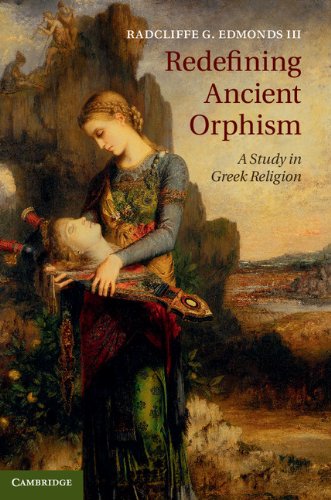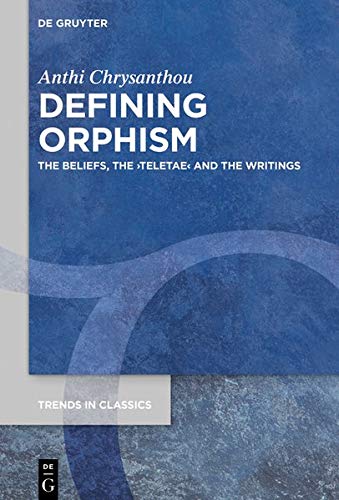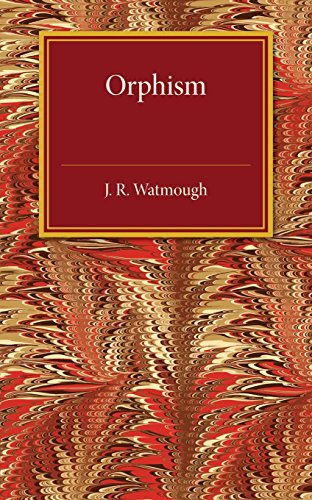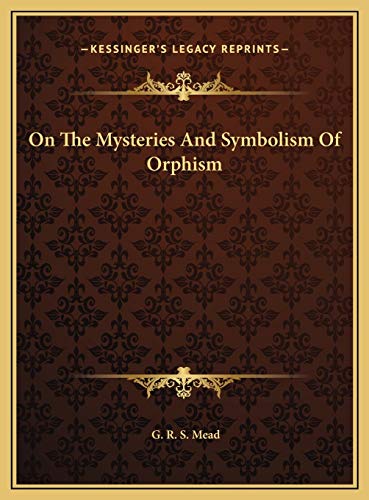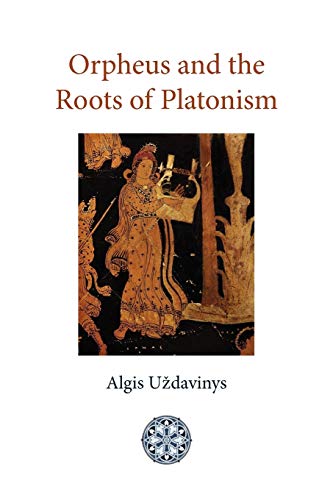Name for a complex strand in Ancient Greek religious thought, contrasting with the more familiar strand of the Olympian deities (Zeus, Apollo, and so on).
A body of religious writings from the 7th and succeeding centuries BC was attributed to the mythical singer Orpheus and his followers.
In Classical times, Orphic ideas were connected with current mystery religions. They concerned purification and initiation rites, and doctrines to do with reincarnation and post-mortal punishment and reward.
Philosophically, their main importance lies in their influence on Pythagoreanism and Plato (c.427-c.347 BC), notably in his Meno and Gorgias. However, modern scholars have doubted how much can be attributed to a specifically Orphic movement distinguishable from the wider background of mystery religions generally.
Source:
I M Linforth, The Arts of Orpheus (1941); takes a somewhat sceptical approach
Table of Contents
Last update 2020-06-17. Price and product availability may change.

